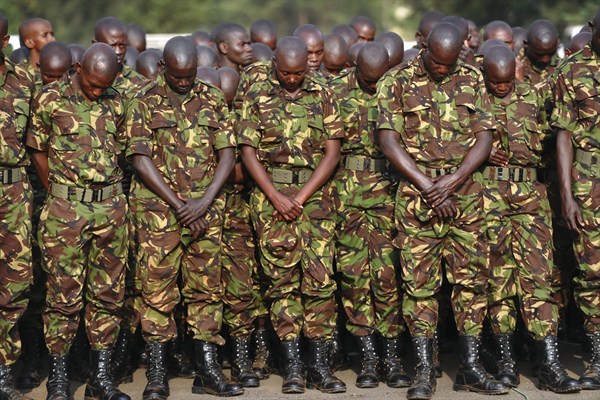With a devastating attack last month on an army base in southwestern Somalia housing Kenyan soldiers, the militant group al-Shabab once again signaled its strength, despite the years-long regional effort to wipe it out. Dozens of Kenyan soldiers were slaughtered in the assault, which raised questions about Nairobi’s role in the ongoing campaign against the Islamic extremists. But Kenya President Uhuru Kenyatta insists his government is committed to vanquishing al-Shabab—even as it does everything it can to silence any domestic debate over Kenya’s continued involvement in that effort.
Kenya first ventured into Somalia in October 2011 with the launch of Operation Linda Nchi—Swahili for “protect the country.” The goal was to stem a wave of al-Shabab kidnappings of foreign tourists from Kenya’s coastal towns and to increase the buffer along the border between the two countries.
The operation began with an air of ambiguity that still pervades Kenyan involvement in Somalia. “When the Kenya government and the people of this country feel that they are safe enough from the al-Shabab menace, we shall pull back,” the now-retired Gen. Julius Karangi, then the army’s chief, said at a press conference weeks after the intervention began.

